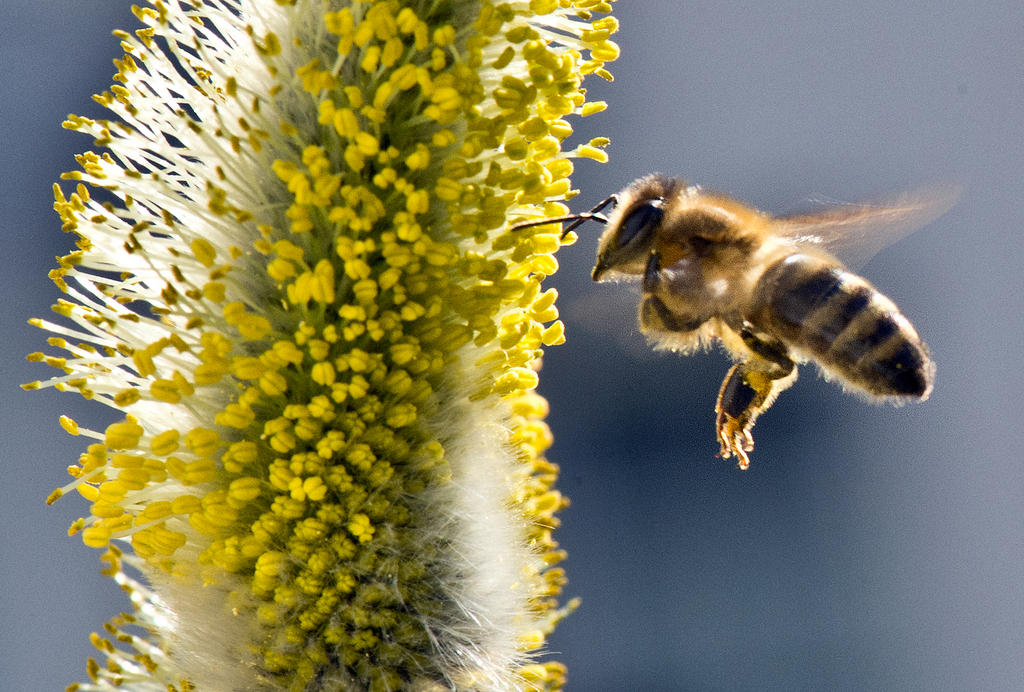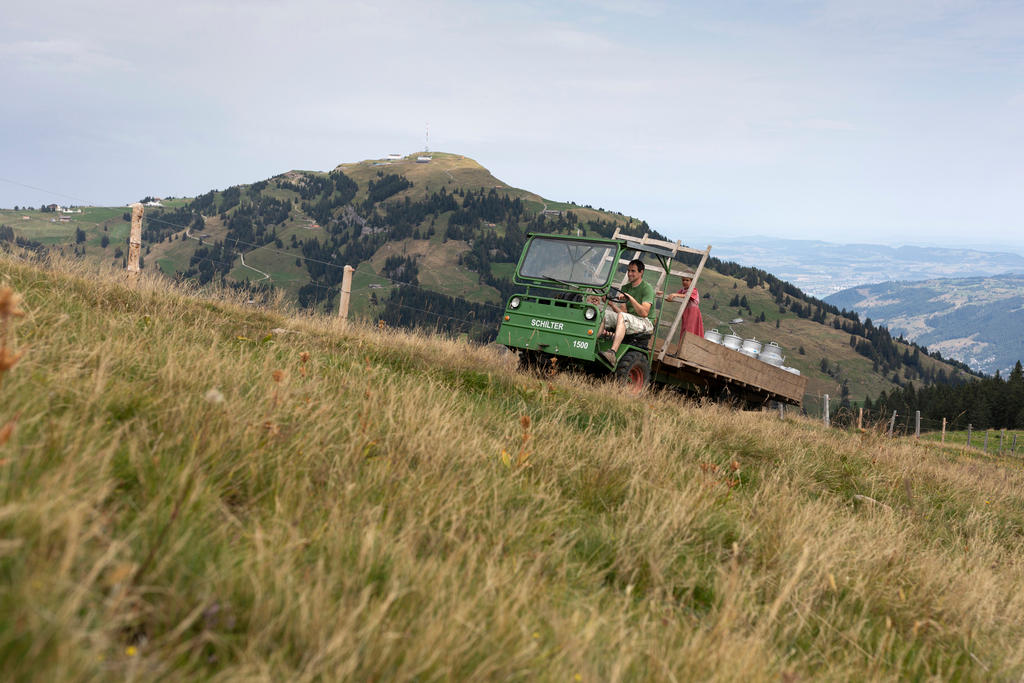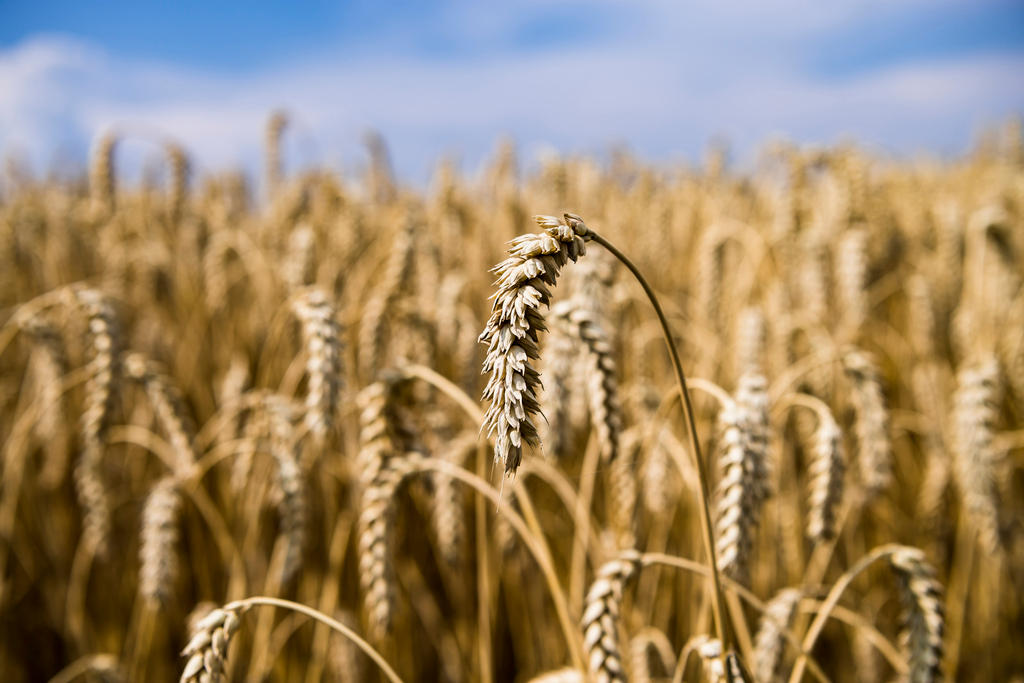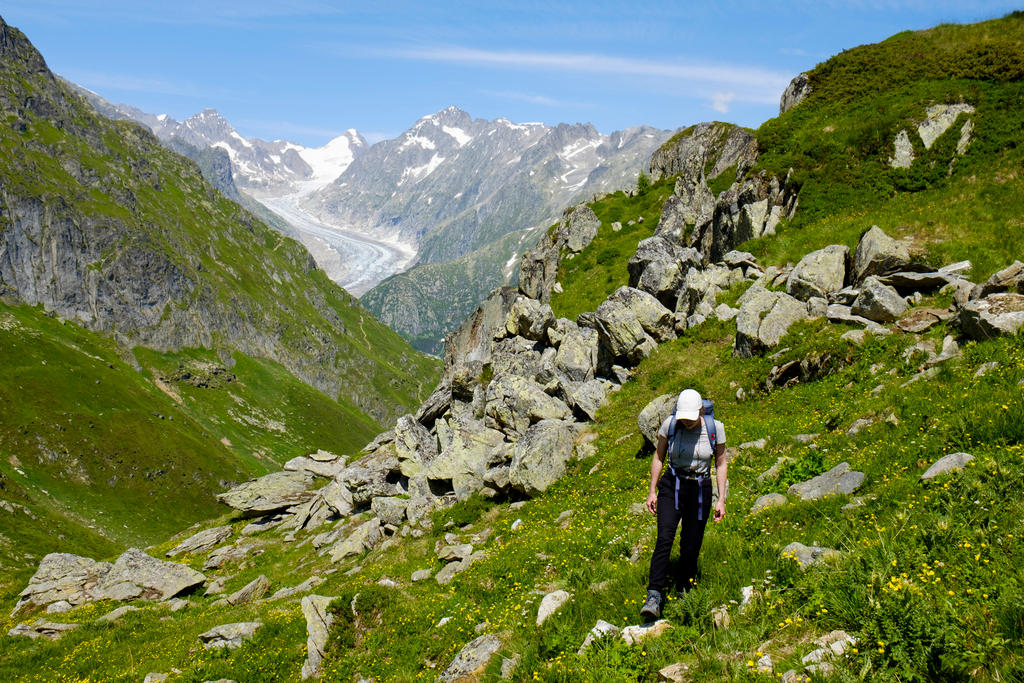Has the hot Swiss summer helped hay fever sufferers?

The summer heatwave shortened the pollen season in Switzerland this year, according to the Federal Office of Meteorology (MeteoSwiss). Despite this, there was no drop in the number of people seeking medical advice for related allergies, such as hay fever, by the end of August.
The highest levels of pollen concentration were recorded in late June and early July, two weeks earlier than normal. MeteoSwissExternal link believes the heat and drought conditions were responsible for the phenomenon, which was last observed in the hot summer of 2003 that also saw a drought.
Levels varied by region, with French-speaking Geneva witnessing 16 fewer days of high pollen count and Neuchâtel 10 less than normal. But in Italian-speaking Ticino, where pollen levels are generally much lower than north of the Alps, the grass season was a little more intense than average.
However, the Swiss Allergy Centre is sceptical about claims that the hot weather induced flowering grasses to pollinate earlier in the year than usual. The organisation says it has seen the same number of people coming forward with pollen allergy complaints as in previous years.
The pollen season in Switzerland generally last until the end of September or into early October.

In compliance with the JTI standards
More: SWI swissinfo.ch certified by the Journalism Trust Initiative



You can find an overview of ongoing debates with our journalists here. Please join us!
If you want to start a conversation about a topic raised in this article or want to report factual errors, email us at english@swissinfo.ch.